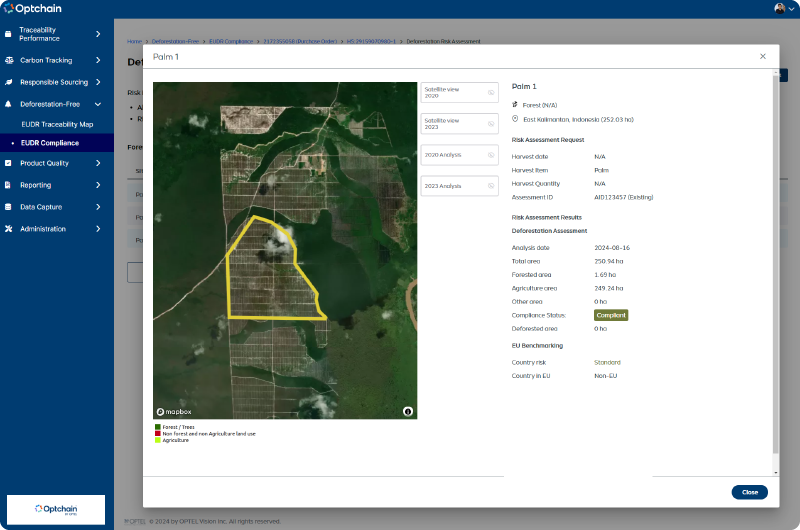CONCLUSION: CHOOSING THE RIGHT TOOL FOR YOUR BUSINESS
While LCA software is valuable for in-depth assessments, especially in R&D, Optchain offers a more dynamic, scalable, and user-friendly solution for operational carbon tracking and broader sustainability management. By integrating real-time data, enabling supplier engagement, and meeting diverse standards, it empowers businesses to achieve tangible carbon reduction and lead in sustainability.
Are you looking to simplify and enhance your Carbon Tracking process? Learn more about how Optchain can help your organization meet its sustainability goals effectively.







